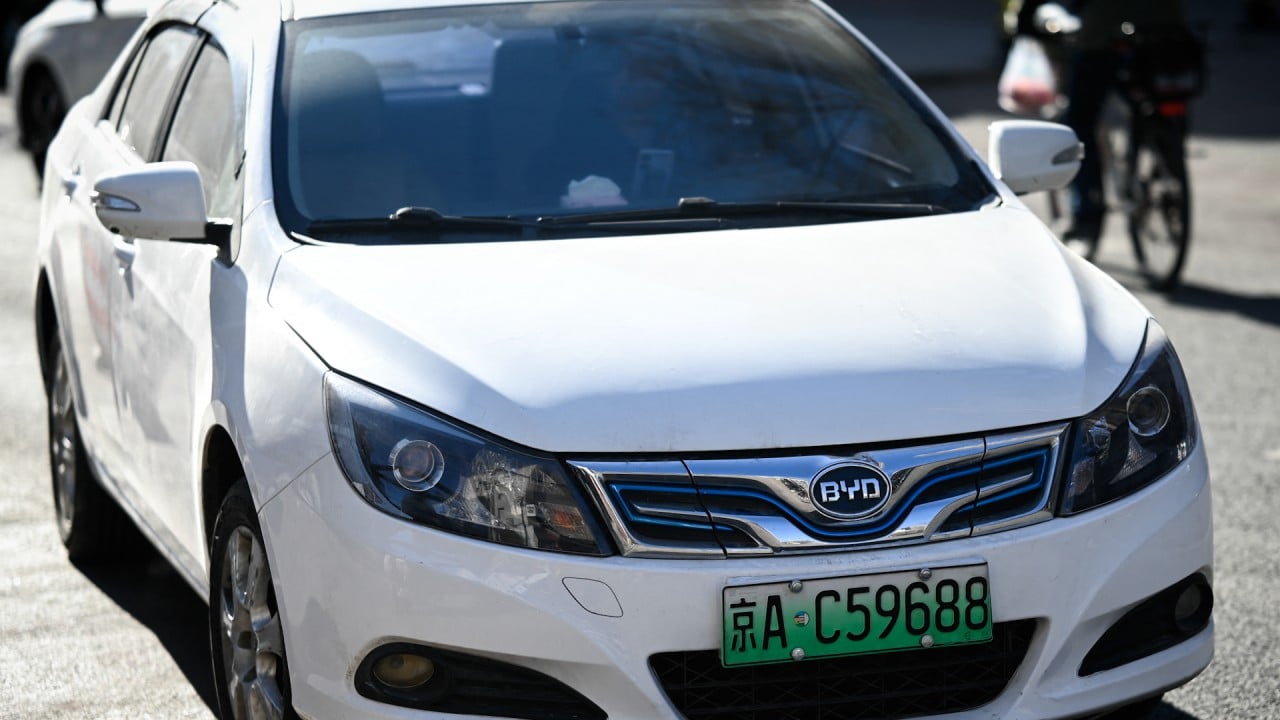
Electric car battery giant CATL teams up with Didi to share swapping tech for ride-hailing fleet in new joint venture
- The companies will work together to build out battery-swapping stations, which have been growing more rapidly than fixed charging in China
- The Chinese government is supporting the adoption of battery swapping, and EV giant Nio is promoting standardisation of the tech
Chinese electric vehicle (EV) battery giant CATL and ride-hailing powerhouse Didi have formed a joint venture (JV) focusing on battery-swapping technology, as they seek to leverage their strengths to make headway in China’s EV charging infrastructure market.
The tie-up will see the companies work closely to “swiftly build out battery-swapping stations and promote vehicles’ support for swapping technology”, according to a statement CATL published to its official WeChat account on Sunday.
The new venture will improve efficiency of public EV charging and make the transport sector greener, CATL said. It will also leverage the firms’ technological and operational advantages by serving Didi’s EV fleet from the offset.
“The public transport market is characterised by a large user pool [and] high charging frequency … making it a valuable business scenario for battery-swapping services,” CATL said in the statement.
Set aside geopolitics to tackle EV battery shortages: CATL founder in Davos
The JV announcement comes on the heels of a statement from China’s Ministry of Industry and Information Technology at a conference held in late December that reiterated its support for battery-swapping tech, with pilot projects set to begin for public transport this year.
Battery-swapping stations rapidly spread throughout China in 2023, jumping 80 per cent from 2,000 stations last January to 3,567 by the end of December, according to data compiled by the Electric Vehicle Charging Infrastructure Promotion Alliance (EVCIPA).
Fixed charging facilities are still much more common, with 2.7 million public stands in China by the end of 2023. That was up 50 per cent compared with January’s 1.8 million charging stands.
Proponents of battery swapping note that it takes just a few minutes compared with the 20 minutes it takes on average to charge a battery enough for around 300 miles (483km) of range, which can result in long wait times at charging stations.
Chinese EV maker Nio has taken the lead in promoting battery swapping, with 2,333 such stations in the country so far.
Nio is collaborating with Chinese carmakers Changan Automobile and Geely, among others, in multiple areas, including the development of battery-swapping standards. Through its partnerships, Nio is advocating for a standardised swapping protocol, as different methods across brands could hinder adoption.
Outside of its new JV, CATL is also teaming up with Xiaoju Energy – Didi’s new energy solutions provider – to offer charging services in more than 190 Chinese cities.


